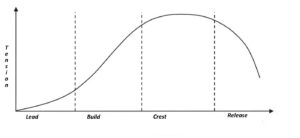There are about a hundred other things I ought to be doing right now, and that’s probably true for you, too. But, as someone who’s highly tuned-in to sound and rhythm, I have to take a few minutes to think authentically with you about all this Internet online marketing noise.
Technology used to be about helping us exceed the limits of mere mortals. In some ways, that’s still true: the promise of self-driving cars, space flight, the human genome. But in other ways, technology has become a slave to industrialization. “Internet marketing” is one of the ways we humans have succumbed to the power of technology…to our detriment. There’s so much marketing noise online that some of us are starting to ask: how do we know what’s real?
Phishing Comes of Age
Forget about spam, robocalls, or even direct-mail advertising. We have the technology! It used to be called phishing, but its nefarious character has changed. No longer do we have to trick you to get inside your digital identity: you give it to us gladly…and for free!
We can target you now. Build a customer avatar around you. We know so much about you now, thanks to your voluntary contributions to social media. How you look, what you wear, what you eat, think, feel, want, despise…it’s all out there. We know how you think about other people, too, and somewhere there’s an AI bot right now that’s trying to understand how you seem to be so nice but make such snarky online comments so that it can sell you something else.
If you’re our target customer, you’re very easy to spot. And we can blast you with all kinds of offers. Get you thinking. Feeling. Wanting our products, our services, our ways of perceiving the world. And you’ll buy it, too, without much difficulty of thought, since we’re also experts at speaking your language – the language you taught us that works best when we want to persuade you.
This is today’s Internet marketing. It’s dangerous, mind-numbing, and, sadly, way too effective.
Trust? It’s a Popularity Game!
Wouldn’t all that be wonderful if you trusted us? You do trust us? How did you decide we were trustworthy? Of course: all the likes we’ve accumulated. We have hundreds of thousands of them. And our content has been viewed hundreds of thousands of times. We make certain that it has by using technology to hit our sites thousands of times an hour, like our content, even comment automatically using words that drive additional engagement.
But wait a minute! That other website/team/personality/new media marketer has millions of likes and views…they must be better than we are! We might just lose your trust to something with more traffic. That would be bad. What to do?
If you’re an Internet marketer and that sounds familiar, it ought to. This is how influence in the digital age works. It’s not that the influencers and content creators have anything real to say except to mirror back enough of what YOU say to get your like or view. And your trust. Whatever trust means these days.
QED (did you look that up?): Popularity equals trust. Boom.
Except that it shouldn’t. Some of the expensive, dead-end results of that fallacy include:
- the savings and loan scandal several decades ago;
- the mortgage crisis and Great Recession not that long ago;
- runaway greed and income inequality right now.
Other questionable results of equating popularity with trust show up in election results, “best of” polls, even “best-seller” statistics. Popular but patently untrustworthy politicians are elected all the time; the restaurant that gets enough people to vote for it gets a #1 award even if it regularly serves warmed-over crap.
You get it.
Buying “Meaningful Celebrity”
The latest example of paying for likes is Indian rapper Badshah, who explained to the world that everyone does it, and that it’s unethical of YouTube not to publicly acknowledge it. This is how Internet marketing works these days. And Badshah, in spite of playing the same game as everyone else, got called on it. Who knows why.
Other than music, just of few of the industries based on the fallacy that popularity equals trust include:
- Democratic elections;
- Amazon best-sellers;
- Consumer goods;
- Fine arts and collectibles;
- Financial services;
- Food services;
- Environmental services;
and everyone’s favorite bag-on
- Direct sales, the grown-up bastard step-child of multi-level marketing.
The idea is that, if people are looking for what you provide, you can SEO the hell out of your content and people will come to you first.
Leveraging the Fallacy of Popularity=Trust
The popularity side of the popularity=trust strategy is easy to buy if you have the funds or if you are already “successful” and bring your tribe of buyers along to whatever is you Next Big Thing. The other part of it is noise…the relentless drip of your thing that washes all the other similar things to the bottom of any Google search.
Are you getting it that traffic isn’t the same as trust? But wait, Bill, I hear you say: all those existing customers (traffic) “trusted” me on my Last Big Thing, why wouldn’t they trust me on my Next Big Thing? It wouldn’t be polite to call out anyone on their level of trust or authenticity, but if you are one such follower (or marketing leader) ask yourself: why does my tribe really follow me? Do they really trust me, or are there a certain percentage of lemmings in my tribe? That’s a hard question, particularly if your traffic-based/trust-deficient model is working.
Look at the results around us in plain view (some of them were bulleted just above). Is it really best for everyone to keep on getting those results? Do they help more than they hurt? Or do they add to the general noise instead of creating actual music?
Before we explore that analogy, let’s get clear on “noise.”
What We Really Mean by “Noise”
“Noise,” the way we want to use it in this article, is the quantity of presence you or your marketing team bring to the Internet for whatever you are marketing. It has zero zip zero zilch nada nothing to do with quality, even though it’s highly automatable.
Noise is thousands of articles, posts, videos, and paid likes for them. It can be the number of podcasts you release in contrast to the number released by your competitors. It can be the run-up, launch, and post-launch PR you are able to bring to a new product or service. Noise can work when it’s louder than anyone else’s noise.
Yes: it doesn’t matter if your “thing” is any good! Plenty of evidence out there for that, such as this article: “I Became a Best-Selling Author on Amazon in Five Minutes with Three Dollars.” (Is this fake news?) Another of my favs is the Amazon best-seller that was simply a picture of the author’s foot.
“Noise” stands in stark contrast to silence, of course, and no one wants to be a silent Internet marketer. Before we go there, though, let’s look at how the Internet indiscriminately promotes noise.
The SEO Myth
Pretend for a moment that you’ve got a great, new, truly innovative idea. It’s outside the scope of anything ever tried before, and it has evidence-based success addressing a whole slew of issues that are already being addressed in one way or another by thousands of other products and services. What do you do?
The Internet marketing canon – perhaps we ought to call this the “industrialized tech-based marketing” canon – is quite specific. You must follow its rules (yes: even MIT offers an entrepreneur boot camp!) or you won’t reach success.
But isn’t being innovative about NOT following the rules?
Uber, for example, was a great idea…but it got industrialized fast and wound up learning what the world actually thinks of its fair market value.
In spite of Uber, let’s say you decide to follow the entrepreneurial rules, build your customer avatar, and start “marketing” to that kind of person using industrialized best practices: targeted email, click funnels, pay per click, social media marketing, even real live paid advertising – you name it.
And you hear…crickets.
The Internet Marketer
So you hire an Internet marketer. Pretty soon, your content is everywhere, and you feel pretty good. You get a few customers. You increase your marketing bandwidth and get a few more customers. Traffic! Things are rolling!
But there’s something happening at the back end: customers are only engaging once before they find a less-expensive or simpler solution than yours, and you’ve no retention or win-back strategy. Why? Because your internet marketing consultant has really great skills with a fire hose but can’t have fun playing with a squirt gun. They don’t realize that authentic play is what keeps customers coming back for more.
Oh sure; some customers will buy twice with “today only” scarcity incentives, or by seeing the “incredible value” they will get if they purchase in the next two days before the deal expires, but there’s nothing about Internet marketing that intrinsically builds a durable relationship with your existing and potential clients. The Internet is basically incapable of doing that for you. You – authentic, real, flaws-and-all – you are the only one capable of creating a trusting relationship with your customers/clients/students/peers/protegés.
Even though you can pay your way to the front page of Google, or on to the New York Times bestseller list, if your marketing strategy doesn’t include a living, breathing, human component, you’re doomed to be paying for likes and clicks for a long, long time. In some industries (think tech startup unicorn here), this appears to be sustainable, but in most, as Uber and WeWork are learning, it’s a quick death.
Think of this, though: while you are “marketing” this way, you’re just adding to the noise. The louder things get, the more you must raise your specific dB level to be heard in the crowd. And everyone else is doing the same, so things just get louder and louder and louder….
Yes, some ideas are good enough to make it to the top and stay there on their own merits, but even many of these are recycled products or services that, based solely on sheer persistence, finally manage to be in the right place at the right time. Word of advice: even entrepreneurs don’t make business plans based on that kind of miracle!
The Power of Trust
Trust, engagement, authenticity, the “real” – whatever you like to call it, trust can’t exist amidst all the noise. Everyone wants a repeat customer – don’t get me wrong: it’s great that people who up for webinar after webinar but it would be awesome if they actually bought whatever was being pitched! – but, unless you’re Amazon, it’s very difficult to win two actual sales from one person these days. Unless your customer trusts you. Believes you are authentic in the way you claim to be. Has independent ways to verify their trust in you.
You get it.
Internet marketing noise can’t do that. Why? Because trust happens face to face. Even your best face on a video with incredible production values is still just a face. It’s much better than email, so there’s this illusion that trust is part of the equation, but it’s not. Remember: it’s a fallacy that traffic equals trust. Curiosity maybe, but trust? That takes non-Internet effort.
How about the current click funnel fad? Same deal. Simply compressing the number of times I can advertise to you in a neat, tidy package doesn’t necessarily mean that I purchased anything because of trust. In fact, there are times where I just wished the click funnel and endless webinar would just get out of my way so that I can deal directly with the person and learn whether or not they’re trustworthy.
Then there’s the tipping point where you think you’ve got my trust and pitch your snake oil. Oddly, enough customers purchase to keep your game going, perhaps lured in by your impressive list of likes or recommendations from every guest who’s ever been on your podcast (and you’ve been on theirs), or the sheer volume of people taking advantage of today-only pricing.
Have we – the people to whom you’re marketing – gotten so tone deaf and unaware that we really must have whatever you’re selling just because you say we ought to?
Maybe at the end of the day this is really all on us – willing to trust based on data that may or may not be true or even related to what’s true, unable to think for ourselves any longer, lost in the web of what we’re told we need…now.
Human Beings are Better Than That
Right about now you are probably wondering why I’d spend part of my day writing all this. We’ve come to that point right now.
I happen to believe that human beings are better than whatever the Internet “reveals” about us.
I happen to think that human beings can distinguish between what’s real and what’s inauthentic.
I notice people turning away from the noise all the time.
Why?
Because I help people learn to listen to music. That’s a huge problem for Internet marketing, because the process of listening to music also engages the best parts of human beings: emotional authenticity, physical health, mental clarity, even spiritual self-awareness. If you are engaged in those basic human processes, Internet marketing suddenly seems so incredibly fake.
People on Music are Authentic
People on music aren’t fooled by Internet marketing.
People on music quickly learn to sort out what’s fake from what’s real.
People on music aren’t led about by their social media feeds. They aren’t susceptible to the latest shiny objects. And they know the difference between noise and, well, music.
People on music are still reading this article, even though I’ve made no attempt to SEO it, add pretty pictures, keyword it into next week, write at a fifth-grade reading level, or keep it under 1,200 words.
People on music are people I want to know. I’m curious about people on music, ready to answer questions about how to process all the emotional, mental, physical, and spiritual content in music, ready to offer an alternative melody that can sustain us. Internet marketers shy away from that – someone might notice the man behind the curtain and ruin the tenuous thread of trust.
Honestly, who among us wouldn’t want to be known more fully? Understood more completely? Recognized for their humanity? Queried about the how and why of their choices? Admired for their courage? Supported in difficulties? Loved?
Internet marketing can’t do that. And, I’m sorry to say, if you feel that it has done that for you, you are sadly mistaken. Only authenticity – genuine, human connection – can do that.
So use the ‘nets for what they’re good at: delivery of information (and yes: it’s going to take a few different searches to get to the “real” answers you want). The ‘net is a great place for opinion – this article included – and that’s also a good reason for it. But, as we’re starting to learn, it may not be the best place to find the “best” deal (many of those come with so many digital strings it’s almost better to shop the old-fashioned bricks and mortar way!). And forget about privacy!
A Shot in the Foot or….?
This article may shoot me in the foot, or it may resonate. No way to know for sure. But it feels authentic for me to claim some tiny portion of the online world as a refuge from marketing. If nothing else, I’ve done that. I hope you will up your game, too, and return some sanity and genuine power to your online life. As you do, put on some music that makes you feel alive.
Got questions? We can help.
Reach out here, here, or here. Want more of an introduction to Bill, what he does, and why? Excellent podcast guest appearances featuring Bill are great ways to hear how the intelligent use of music can work for you, and this is a good one. If video is more your thing, here’s Bill’s YouTube channel.



